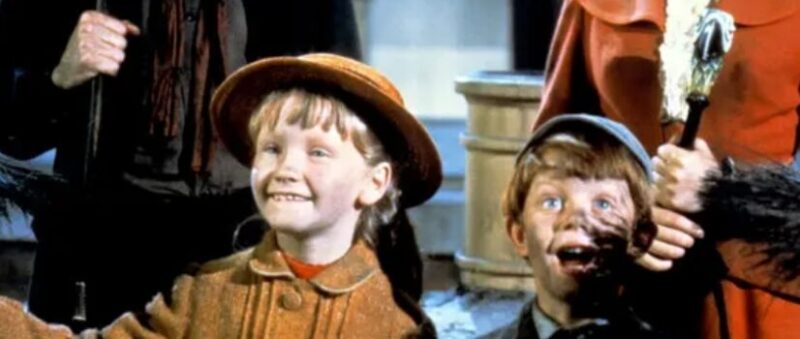UK Places ‘PG’ Rating On Mary Poppins
The beloved 1964 film "Mary Poppins" has recently received a PG rating from the British Board of Film Classification (BBFC) to warn parents about the use of discriminatory language in the film. Despite enchanting generations of youngsters, the film now carries a warning that it may not be suitable for children to watch alone.
This is due to the use of the word "Hottentots", which was historically used by Europeans to refer to the Khoekhoe, a group of nomadic herders in South Africa, but is now considered racially offensive.
According to the Daily Mail, the reclassification was brought about by the concerns of parents who feared exposing their children to discriminatory language or behavior that they may find distressing or repeat without realizing the potential offense.
A spokesperson for the BBFC stated, "Content with immediate and clear condemnation is more likely to receive a lower rating." This indicates that the organization takes into consideration the message being conveyed and the way it is presented when deciding on a film's rating.
The BBFC also revealed that they only review and potentially reclassify previously classified content when it is formally resubmitted to them. They have classified "Mary Poppins" as a U-rated movie on its release in 1964 and again in 2013 for a theatrical re-release. Most recently, the film was resubmitted in February 2024 for another theatrical release, which led to its reclassification as PG for discriminatory language. This information was made public on the organization's website.
A U rating means that the content should be suitable for audiences aged four years and over, although it is impossible to predict what might upset any particular child. A PG rating indicates that the film may be unsettling for children aged around eight or older. According to the BBFC, one of the main categories by which a movie is judged as PG is for the appearance of discrimination.
They state that discriminatory language or behavior is unlikely to be acceptable unless clearly disapproved of, or in an educational or historical context, or in a particularly dated work with no likely appeal to children. Discrimination by a character with whom children can readily identify is also deemed unacceptable.
It is reported that the reclassification only affects the cinema version of the film, and the home entertainment versions remain rated U. This decision has raised questions and sparked discussions about the need for reclassification of old films and whether it is fair to judge older films by today's standards. However, the BBFC maintains that the reclassification was done in line with their current standards and practices, and they only review films that are resubmitted to them.
In the wake of this news, many are remembering the late Glynis Johns, known for her role as Mrs. Winifred Banks in "Mary Poppins", who passed away in January at the age of 100.
Her manager, Mitch Clem, told The Associated Press that she died of natural causes at an assisted living home in Los Angeles. He also added, "Today's a sad day for Hollywood. She is the last of the last of old Hollywood." The reclassification of "Mary Poppins" serves as a reminder of the changing societal norms and attitudes towards certain words and language, and the impact it has on media and entertainment.


